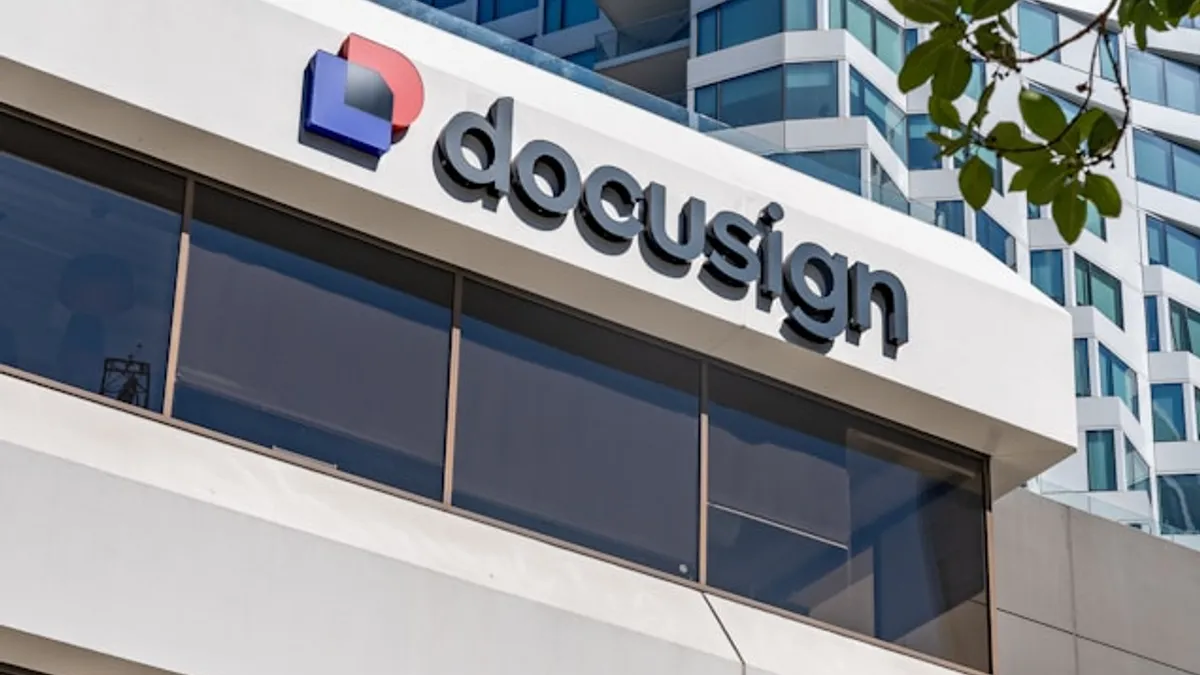What started as an alternative education option has advanced to partnerships with companies to meet digital skills needs. Although coding schools and bootcamp-style programs faced an uphill battle in gaining broad acceptance, some of the most successful ones are partnering with enterprise clients to help with digital transformation and other upskilling initiatives at a much larger scale.
The first coding schools popped up in the early-2010s. Their value proposition included access to highly desirable skills and a fast track to high-paying jobs for less money than a university degree. For employers, coding schools offered a source for talent in programming, web design and other fields that were becoming increasingly hard to recruit.
Some gained enough of a reputation that they were eventually acquired by larger companies — for example, Flatiron School was acquired by WeWork in 2017 — while others just kept growing.
"What our founders recognized was a relatively straightforward supply and demand imbalance in the technical hiring space," Noam Mintz, director of enterprise at Flatiron Schools, told HR Dive.
However, some startups looking to cash in on this new category were giving it a bad name. A Bloomberg article from 2016 chronicled the inconsistencies across these programs, reporting that leaders from Google, Cisco and tech recruiting firms didn't consider them a viable talent source.
"Our experience has found that most graduates from these programs are not quite prepared for software engineering roles at Google without additional training or previous programming roles in the industry," the tech giant’s director of education and university relations at the time told Bloomberg. One Bay Area recruiter went as far as saying these schools were "a freaking joke."
Today, there are more than 500 fast-cycle, technical education companies, according to Course Report, an organization that studies this emerging industry.
At first, these programs weren’t regulated at all, and many still aren’t. Course Report recommends attendees choose a boot camp that is licensed by a state agency, meaning that "the school has to submit their curricula (and any major changes) for approval, invest in liability insurance in case of closure, and publicize their course catalog."
Some schools were found to be using misleading or unsubstantiated data for their placement rates, starting salaries and other figures in the marketing of their programs, a problem that persists to this day. New York Magazine published a story last month about Lambda School, a coding school that received funding from the prestigious Y Combinator and Google’s venture arm, but was reportedly using student debt as an asset, offering an ineffective curriculum taught by inexperienced instructors and misreporting its job placement rate. Lambda school refuted these allegations, sending HR Dive a copy of its first half report, a blog post explaining its financial model and a Twitter thread from the company CEO.
Many schools — including Flatiron, according to Mintz — use third-party auditors to authenticate their outcomes.
"A good [boot camp] should be publishing some kind of outcomes report with some regularity," Ariana Dugan, VP of enterprise products at General Assembly, one of the largest technical training companies, told HR Dive. "We have our next ones coming out next quarter." They are also independently audited, she said.
This eventual maturation of the industry, sharpened by years of competition and some external oversight, has led to increased acceptance and efficacy. Course Report’s most recent analysis found that 83% of graduates surveyed were "employed in a job requiring the technical skills learned at bootcamp." Additionally, a recent study from HackerRank found that 32% percent of hiring managers said they've hired someone who has graduated from a boot camp and 72% of managers said they make better hires.
A corporate view
For Priya Priyadarshini, the general manager of global early career programs at Microsoft, the proliferation of this credential means that as her company seeks to cast a wide net in recruiting for tech roles, it can’t rule out bootcamp graduates.
"I think recently, we are focusing even more and more on these non-traditional pathways," Priyadarshini told HR Dive. "We believe that there are many pathways to the technology industry and to Microsoft and we are leveraging talent from previously untapped talent pools more than we have done in the past."
While the technical ability of graduates may vary, they tend to possess something beyond teachable skills that Priyadarshini values.
"If you think about the characteristics, their perseverance, great commitment and passion in technology ... innovative problem solving ... strong self-learning capabilities, it reflects their desire, commitment and capability to join the tech world," she said, adding that Microsoft sources candidates from hundreds of boot camps across the country.
Rather than having preferences, Priyadarshini sees these schools as a sourcing channel, such as a college or university. Microsoft meets with students attending these programs to assess cultural fit and personal characteristics.
"I wouldn't say we have one favorite versus the other," she said. "Ultimately, we are engaging with the actual candidates in these boot camps, more so than the label of who these boot camps are."
Microsoft has launched such a program, called LEAP. Priyahdarshini said the 16-week apprenticeship has had nearly 400 participants and also helps the company in its diversity efforts. Not all graduates end up working at Microsoft, but those who do make an impact.
"Our LEAP program is seeking candidates who are passionate about technology," Priyadarshini said. "They may not have the traditional four-year degree and that's okay... they offer diverse perspectives... They just don't just bring innovation and cognitive diversity to their work, but also to their colleagues."
Diversity may also be a good reason for companies to partner with coding schools.
"We've structured our programs such that we have an incredibly diverse population, across gender, and race and all different types of backgrounds," Mintz said. "Companies will come to us and say, ‘Hey, we're looking for a more diverse pool of candidates.’"
There are many existing boot camp programs specifically geared toward underrepresented groups in tech, such as Girls Who Code, Resilient Coders and Techtonica.
Upskilling-as-a-Service
It is becoming increasingly popular for larger companies to develop this kind of skill-building capability in-house. Some coding schools have graduated to providing customized versions of their existing programs to enterprise clients. Others are partnering with universities to bring their programs into a more traditional infrastructure.
"At Disney, all the theme park cast members can apply to a special version of the GA immersive program and get mentorship and a job on a Disney tech team," General Assembly founder and CEO Jake Schwartz told Crains. "Adobe has Adobe Digital Academy, where women and people of color get full scholarships to GA and internships that lead to full-time jobs at Adobe."
General Assembly, Flatiron School and Trilogy Education Services are all examples of providers that have moved toward this institutional model. Each of them were acquired by larger companies within the past three years.
"There's a lot of excitement right now, around upskilling and retraining and transforming organizations," Mintz said, noting that this was an evolution from working with businesses that had very targeted technical hiring needs.
Trilogy Education Services earned HR Dive’s 2019 Employee Initiative of the Year award for its efforts in this space. In recent years, the company, now part of 2U after a $750 million acquisition, has launched programs in conjunction with Johns Hopkins University, the University of Oregon and the University of Connecticut. It has also expanded into fintech through partnerships with Columbia University, Rice University and Northwestern University.
In 2018, General Assembly was purchased by Adecco, a global HR and staffing firm. Schwartz is quoted on the company website saying they are "the solution to the global skills gap."
"Even when we called ourselves an education business, the secret was that we were always about human capital and talent," he told Forbes shortly after the acquisition. "Most people thought we were crazy… And to think now [talent development] is on the tip of everybody's tongues. […] I'm just really excited because people talk a lot about the future of work now."
The nature of those talent development conversations has changed over the past few years. "I'd say a lot of the focus [from corporate clients] when we first started was digital transformation," Dugan said, reflecting on the start of her time at General Assembly four years ago. "They have some sense that their people aren't fully equipped... and so can we find someone who can help get our people where they need to be in that context."
Today, Dugan says, "the idea of upskilling and reskilling as an explicit need within businesses has become much more a part of the vocabulary of the folks that we work with," which has allowed for a much more customized approach to building digital skills across an organization.
First, "we think about our offerings in the context of building literacy," she said, noting that for some skills, such as data analysis, every company needs to set a baseline for where they want every employee to be.
The next level up from there is "adding it as a skill where it might not be a part of your every day, but it is something that you need to have some functional ability with."
Finally, "doing the hardcore skilling of it, which is like 'we are making you into a data scientist,'" the most involved option where employees are taking a considerable time away from their jobs to gain an entire new skill set for a new role.
Dugan and Mintz were both quick to credit their respective companies’ success to the effort and resources invested into constant evolution of their curricula. "We're thinking two- to four-year windows of how quickly the relevant skills for an entry level data scientist or an entry level software engineer changes," Mintz said "So we have a curriculum team that is constantly updating."
A cultural transformation
They both also have witnessed the extent to which talent development has become a business line and C-suite priority. This allows any upskilling or development initiative to enjoy broader buy-in and a higher likelihood of success, according to their observations.
One common mistake for companies looking to improve their digital capabilities is that they underestimate the amount of stakeholders involved in such a key talent initiative. Mintz said he has seen the most success working with a combination of senior leaders from three functional areas: HR, the line of business and IT, and warns that companies should not expect an overnight change.
"I think that often... folks just are looking for a plug-and-play solution and then looking for an immediate return on those solutions," Mintz shared. "Something that we preach, when we talk to our partners is… it's going to require more of a cultural transformation."
"We are often working with heads of business," Dugan said. "Where L&D is a component of the conversation or HR is a component of the conversation, but really, heads of business view this as mission critical."
While there is a lot of pressure to measure returns on an investment in training, it can be hard given that engagement, retention and company performance could take years to noticeably improve. Measuring ROI can be easier if digital upskilling is tied to a specific project or product launch, Dugan said, noting that often General Assembly's corporate partnerships are tackling larger business problems.
"We talk about ourselves as an employment company more than a coding boot camp," Dugan said. "We're helping people get jobs, and we're helping job needs that companies have."
Correction: An earlier version of this article omitted Lambda School’s response to the New York Magazine story. HR Dive regrets the error.






















